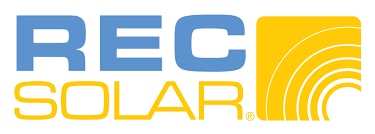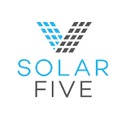Best Solar Financing Companies
Many financing companies lend money specifically to help homeowners adopt renewable energy across North America, and most people going solar today use some form of solar financing. If you’re planning to install solar panels, it’s important to know the best way to finance your renewable energy system and compare several of the best solar financing companies out there.
- Our recommendations are based on what reviewers say.
- 4,338,283 reviews on ConsumerAffairs are verified.
- We require contact information to ensure our reviewers are real.
- We use intelligent software that helps us maintain the integrity of reviews.
- Our moderators read all reviews to verify quality and helpfulness.
Compare Top Solar Financing Companies | ||||||
|---|---|---|---|---|---|---|
Compare
| Sells panels, inverters and batteries. Includes monitoring, full-service installation and 25-year warranty on parts, labor and repairs. Offers purchase, finance, lease and energy prepay options. Available in California and Texas. |  | Get Started | |||
Compare
| Offers complete, all-in-one home solar systems, including storage. Minimalist design. Online design studio lets you see a system on your roof before buying. Comprehensive warranty. | Get Started Call Center Open (855) 463-9212 | ||||
Compare
| Sunrun offers free energy consultations in 20 states.With 15 ys of experience, Sunrun sells & leases customized residential solar energy systems.Their Solar Advisors offer one-on-one consultants to guide you through the details. |  | Get Started Call Center Open (844) 321-6938 | |||
Compare
|
LightStream
Partner DisclosuresYour loan terms, including APR, may differ based on loan purpose, amount, term length, and your credit profile. Excellent credit is required to qualify for lowest rates. Rate is quoted with AutoPay discount. AutoPay discount is only available prior to loan funding. Rates without AutoPay are 0.50% points higher. Subject to credit approval. Conditions and limitations apply. Advertised rates and terms are subject to change without notice. Payment example: Monthly payments for a $10,000 loan at 8.99% APR with a term of 5 years would result in 60 monthly payments of $207.54. Truist Bank is an Equal Housing Lender. © 2023 Truist Financial Corporation. Truist, LightStream, and the LightStream logo are service marks of Truist Financial Corporation. All other trademarks are the property of their respective owners. Lending services provided by Truist Bank. | Loan amounts from $5,000 to $100,000. Offers a 0.5% APR discount for using automatic payments. Rate Beat program for competitor offers. Minimum credit score varies. No fees or prepayment penalties. | Get Started | |||
Compare
| Offers smart-home solutions for residential customers in partnership with Freedom Forever. Purchase includes a free home security system. Three types of financing available. 25-year production guarantee. |  | ||||
Provides renewable energy and energy-efficient financing solutions to property owners. EmpowerLoans and PACE financing available. No lease or PPA options. Sells and installs solar power systems through affiliated partners. | Chat with a ConsumerAffairs decision guide Live agent | |||||
Compare
| Provides free solar energy educational resources. Helps homeowners compare quotes and find local solar installers. Partners with Go Solar California, Massachusetts Clean Energy Center and Environment America. | Get Started | ||||
| Read Author Review | Mosaic is a solar energy company that partners with solar contractors. The company provides solar loans on systems and batteries. Mosaic also provides a digital platform that connects you with your solar provider. |  | Chat with a ConsumerAffairs decision guide Live agent | |||
| Read Author Review | Based in San Luis Obispo, California, REC Solar provides logistical and financial support for businesses in multiple sectors installing solar energy systems. The company’s projects span more than 20 states and Puerto Rico. |  | Chat with a ConsumerAffairs decision guide Live agent | |||
| Read Author Review | Renew Financial lends to California and Florida homeowners who build energy- or water-saving improvements on their home. Renew also offers commercial loans for businesses and multifamily residential projects. |  | Chat with a ConsumerAffairs decision guide Live agent | |||
Solar financing options
As of publishing, there are four main ways to fund a solar energy system, each with its own pros and cons. You can take out a solar loan, sign a lease, enter a power purchase agreement or pay in cash.
1. Taking out a solar loan
Solar loans are available through many different providers, including directly from the installer or through third-party lenders. With a solar loan, you can pay for your system over time, often with no upfront costs. Applied interest increases the total price of a solar installation, but you can still save money in the long run by employing solar energy versus electric.
2. Signing a solar lease
A solar lease is another option that typically doesn't have major upfront costs. With a solar lease, the company that installs your system maintains ownership of the panels — you simply rent them for a small monthly fee. The price should be lower than the existing cost of electricity on the property, and all the electricity produced by your panels is typically credited to your monthly energy bill.
3. Entering a power purchase agreement (PPA)
A power purchase agreement (PPA) is another way to pay for solar without taking out a loan or making a large purchase upfront. With a PPA, there are typically no upfront costs, and you still pay for electricity based on your usage — but at a reduced rate to incentivize clean energy. PPAs usually require that panels be installed on your property, but VPPAs (virtual power purchase agreements) are also becoming popular for off-site solar energy.
4. Paying in cash
You can pay for a solar energy system the old-fashioned way — in cash. If you can cover the costs of a solar energy installation yourself, an upfront cash payment is typically the best way to invest in a system. This way, you don’t have to pay interest or additional service fees. You could also get a discount for paying upfront. If you’re paying this way, companies may compete for lower installation costs to win your business. You may also qualify for the federal solar tax credit.
Buying solar panels vs. getting financing
The big difference between buying and leasing solar panels is who owns the panels at the end of the day. With a lease, the solar installer will maintain ownership of the system, even while it sits on your roof.
Pros and cons of buying solar panels outright
According to Dan Orzech, president of the Oregon Clean Power Cooperative, “Owning your solar panels outright means putting out money upfront, but the trade-off is that all the energy savings go directly into your pocket.”
Pros
- All energy savings go back into your pocket, giving you more value over time.
- The panels become a part of your home, which increases the property value and provides a selling point.
- You may be eligible for the federal solar tax credit and other incentives to help finance your renewable energy system.
Cons
- Solar panels come with significant upfront costs.
- As the owner of the panels, you’re likely responsible for any maintenance (though this should be minimal).
Pros and cons of getting solar financed
Regarding leasing solar panels or entering PPAs, Orzech warned that “leasing from a solar company often means you're turning over most of the savings to them, so read the fine print carefully.”
Pros
- Solar panel leases typically begin with no money down.
- The installer will handle any maintenance issues.
Cons
- Leases offer fewer long-term savings opportunities.
- You might not be eligible for solar financial incentives.
- Leases make it more difficult to sell a home — the lease will almost always need to be transferred to the new owner.
How to maximize the value of your solar investment
While buying a solar energy system will almost always lead to more long-term savings than a PPA or lease, maximizing your investment depends highly on the terms of your loan. As Orzech explained, “Loans arranged through a solar company may or may not be worthwhile, but there are credit unions [that] specialize in loans for solar and offer good rates.”
By finding the best solar financing companies and favorable loan terms, you can maximize the value of your investment with monthly payments designed to create both short-term and long-term energy savings.
FAQ
How much do solar panels cost?
Today, solar panels cost much more than just their purchase price — you have to factor in the cost of system design, other components (such as inverters and wiring), permitting and installation. On average, residential solar panels cost approximately $16,000 for a full-home system, with the total price heavily reliant on local installer rates and buyer eligibility for financial incentives.
What credit score is needed for solar panels?
There is no established minimum credit score as a solar industry standard; this varies by provider. In general, you’ll likely need a credit score of 580 or higher to apply for a solar loan, but low-credit options may be available with special lenders or through low-income financing programs. Better rates are available for those with high or excellent credit scores.
How do I calculate how much solar power I need?
To calculate the amount of solar power you need, we highly recommend working with a professional. Calculating the capacity of a solar energy system is typically based on a property’s annual electricity consumption, which can be found on your utility energy bills. Solar design software is then used to determine how many panels it takes to meet your electricity demand based on property features like roof size, pitch and the average amount of sunlight per day.
Can you refinance solar loans?
Many solar financing companies allow you to refinance solar loans during an active contract. Some make it easier than others (some allow for refinancing with no extra fees), so it’s important to learn a company’s financing policies before signing an agreement.
Is the tax on a solar loan deductible?
To keep the costs of going solar low throughout the payback period, you can potentially deduct the loan interest on your taxes. Although it may cost a bit extra upfront, applying for a home equity loan or home equity line of credit (HELOC) makes it more likely for a solar adopter to deduct the interest from their taxes as a certified home improvement. This is a question you should ask your lender, given that eligibility varies.
Is a solar loan worth it?
A solar loan can be worth it with the right set of conditions. If you have good credit, you’re likely to have access to fair-market solar loans to purchase your system and save money on the long-term costs of electricity with solar energy.
Article sources
- U.S. Department of Energy, “ Paying For Solar – Tips For Financing a Residential System .” Accessed Nov. 3, 2022.
Thanks for subscribing.
You have successfully subscribed to our newsletter! Enjoy reading our tips and recommendations.
Compare Top Solar Financing Companies | ||||||
|---|---|---|---|---|---|---|
| Read Author Review | In business since 2007, Sunlight Financial offers homeowners and solar providers a customizable set of solar loan products. The company helps customers go solar with no money down. |  | Chat with a ConsumerAffairs decision guide Live agent | |||
| Read Author Review | VERT Solar Finance is a solar financing company that provides tax equity, funding and advising to large companies, property owners, developers and investors working on large-scale solar projects in North America. |  | Chat with a ConsumerAffairs decision guide Live agent | |||
Specializes in residential and commercial solar systems with monitoring. Offers rooftop and ground-mounted systems. Purchase, lease, loan and PPA options. Available in Massachusetts and Rhode Island. Out Of Business |  | Chat with a ConsumerAffairs decision guide Live agent | ||||
Information in this guide is general in nature and is intended for informational purposes only; it is not legal, health, investment or tax advice. ConsumerAffairs.com makes no representation as to the accuracy of the information provided and assumes no liability for any damages or loss arising from its use.
Want your company to be on this guide?
Yes, continueYou’re signed up
We’ll start sending you the news you need delivered straight to you. We value your privacy. Unsubscribe easily.